Publications
fp21 is building a new culture of foreign policy. Explore our publications below.
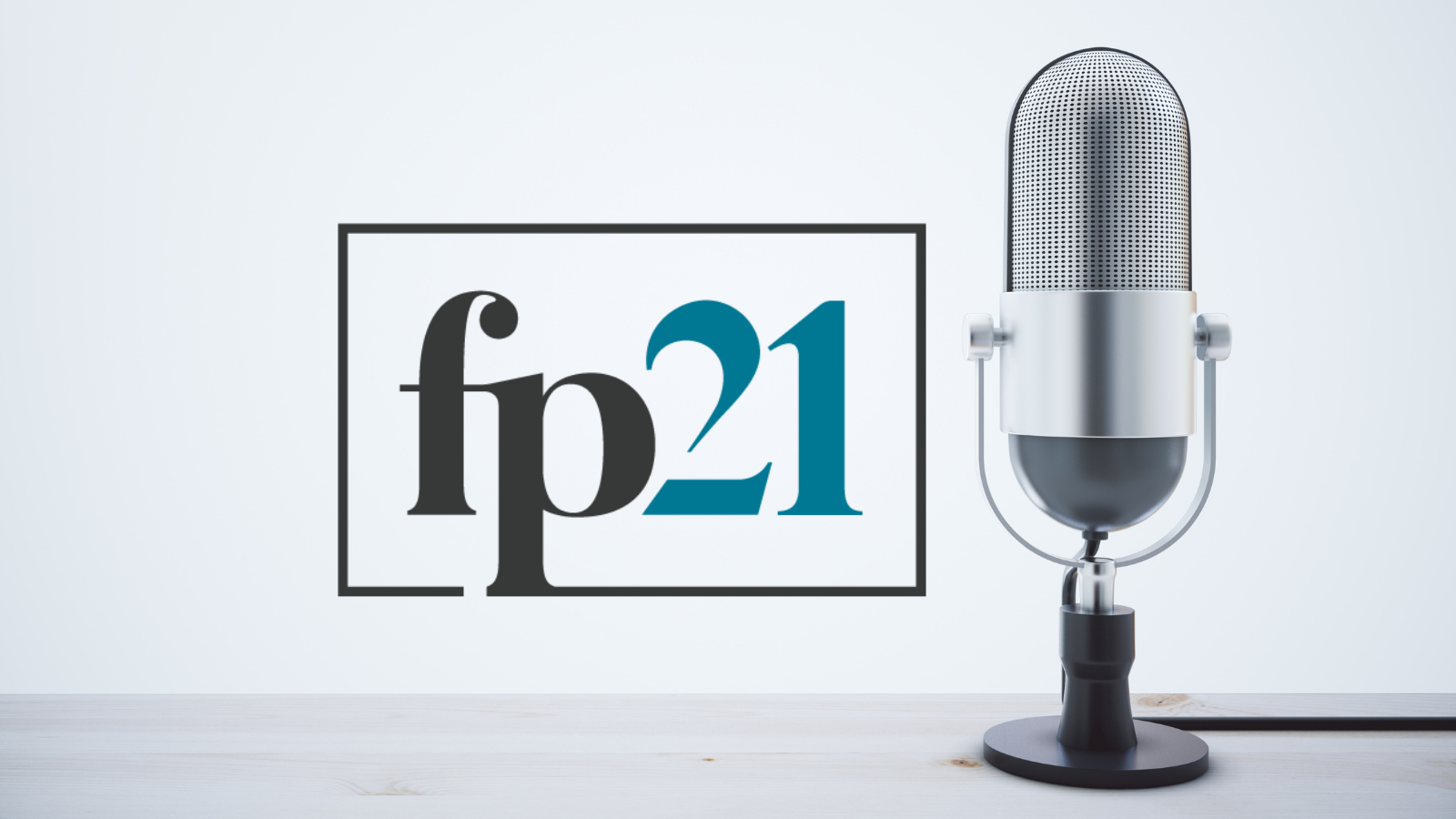
Episode 8: Deinstitutionalization
Dr. Thomas Scherer and Dan Spokojny discuss their article, Foreign Policy Should be Evidence-Based.
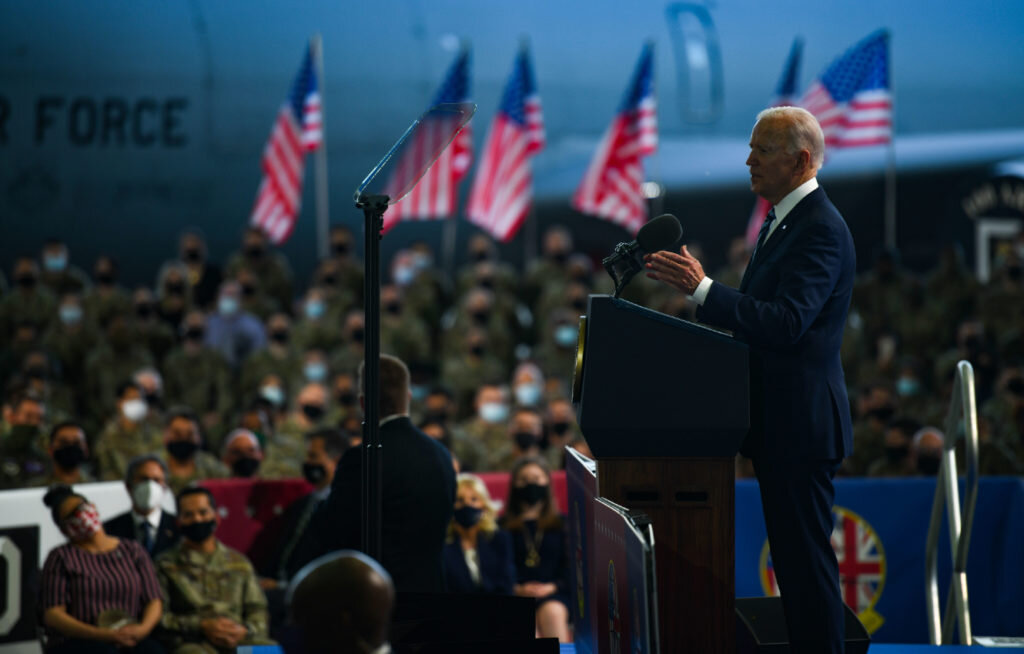
Foreign Policy Should Be Evidence-Based
Dan Spokojny and Thomas Scherer: An ascendant China. A revanchist Russia. Climate change. The threat of nuclear proliferation. Rising authoritarianism. The challenges to U.S. influence on the world stage have become so numerous, serious, and complex that some experts see the “unraveling” of American power. Simply put, yesterday’s tools may not be up to the task of solving today’s problems. We argue that the nation's ability to confront these challenges may depend on adopting an evidence-based policy process.

The Crisis at State is Deeper than We Admit
Dan Spokojny: An eye opening survey conducted by a team of graduate students at Harvard Kennedy School finds that about a third of foreign service officers are planning on quitting the State Department. The report should be commended for bringing renewed attention to the challenges at State, but it risks minimizing the scale of the problem and the transformation needed to save the oldest cabinet agency from further decline. I believe at least three interrelated factors are undermining morale, driving top talent to the private sector, and harming the ability of the State Department to produce exceptional management policy and foreign policy: a top heavy decision-making process that disempowers careerists, diversity challenges that undermine merit, and the questionable impact of the policymaking process.

Episode 7: Train the Bosses
Third and final part of the conversation between Dr. Vic Marsh and fp21 CEO Dan Spokojny.

Episode 6: Training Float
Part 2 of the conversation between Dr. Vic Marsh and fp21 CEO Dan Spokojny.

Episode 5: Phone some Experts
Part I of a conversation between fp21 founder and CEO Dan Spokojny and Victor Marsh, Ph.D.

Episode 4: Culture of Silence
The second part of a conversation between fp21 founder and CEO Dan Spokojny with Maryum Saifee, who is currently a U.S. diplomat contributing in her personal capacity. Her views do not reflect her institutional affiliations. While on a two-year sabbatical from the foreign service, Maryum was a Council on Foreign Relations International Affairs Fellow, Presidential Leadership Scholar, and Truman Center for National Policy Senior Visiting Fellow where she led a 30-person taskforce on State Department reform.

Episode 3: Leave without Pay
How can the State Department benefit from letting its career employees spend time in other institutions?
fp21 founder and CEO Dan Spokojny speaks with Maryum Saifee, who is currently a U.S. diplomat contributing in her personal capacity. Her views do not reflect her institutional affiliations. While on a two-year sabbatical from the foreign service, Maryum was a Council on Foreign Relations International Affairs Fellow, Presidential Leadership Scholar, and Truman Center for National Policy Senior Visiting Fellow where she led a 30-person taskforce on State Department reform.

Episode 2: Data and Diversity
How can evidence improve diversity in the State Department—and what’s at stake for the national interest? The diplomat Chris Le and academic Thomas Scherer in conversation.

Episode 1: Hello, World!
What is fp21—and what’s the plan for this podcast? Our CEO Dan Spokojny in conversation with Alex Bollfrass.

🎧 fp21 minutes | Trailer
Introducing an audio companion to fp21.

Why We Should Care About Politically Appointed Diplomats
Dan Spokojny: As Biden’s leadership team takes shape, it’s a good time to examine the research about political versus career appointments. On the one hand, presidents rely on political appointees to implement the agendas that got them elected. On the other hand, empowering long-serving career officials ensures the most experienced officials are influential in the policy process and incentivizes the development of expertise through a career in government service.
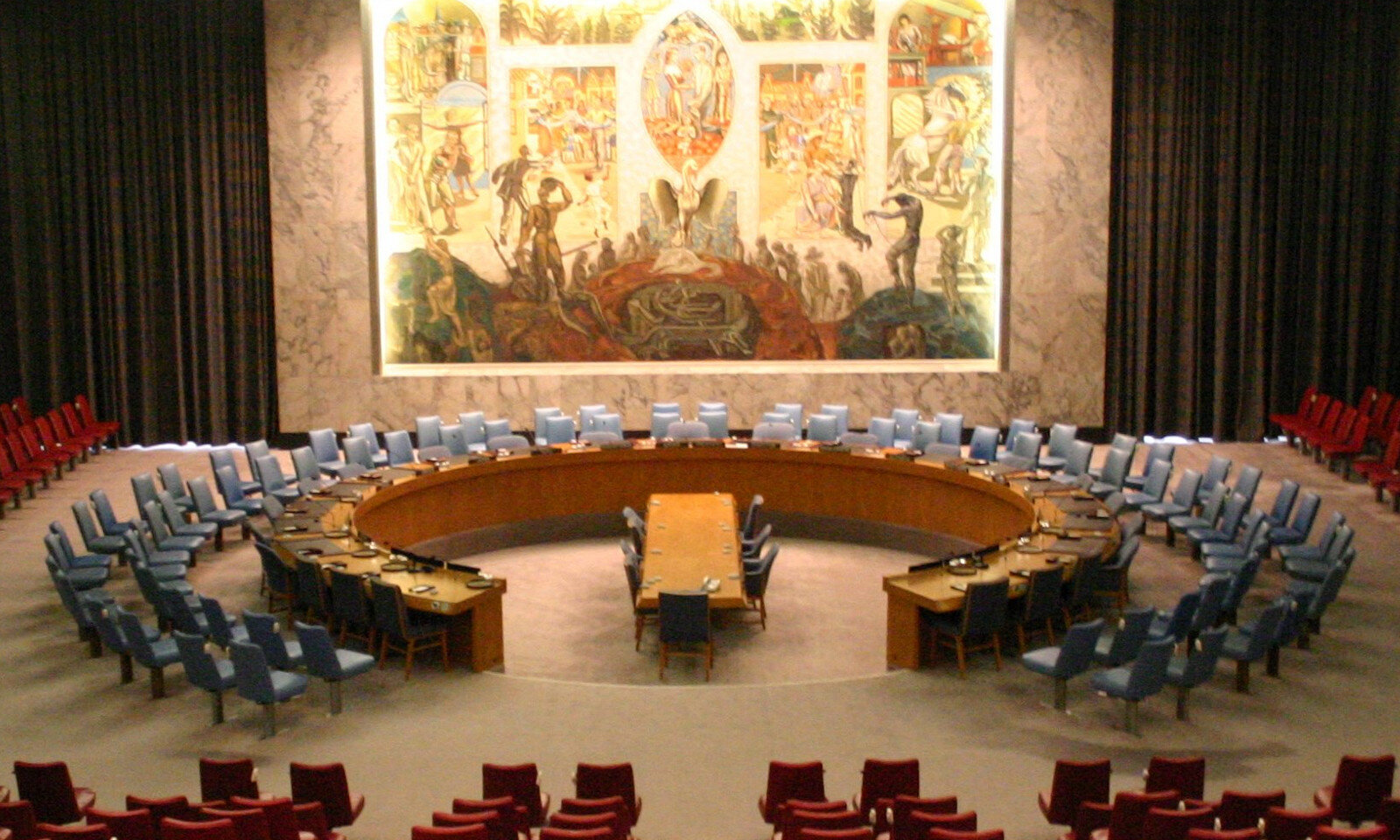
Winning the AI Revolution for American Diplomacy
Ryan Dukeman: Artificial Intelligence will be essential in strategic competition against digital authoritarianism and as a tool for more responsive, informed, and effective foreign policymaking. While the State Department has mostly been left out of America’s approach to AI, diplomats are uniquely positioned to advance an affirmative, values-based framework for global AI across these issue sets. State should capitalize on AI for more effective, responsive, and informed foreign policymaking, including in crisis-management, scenario-planning, and policy analysis.
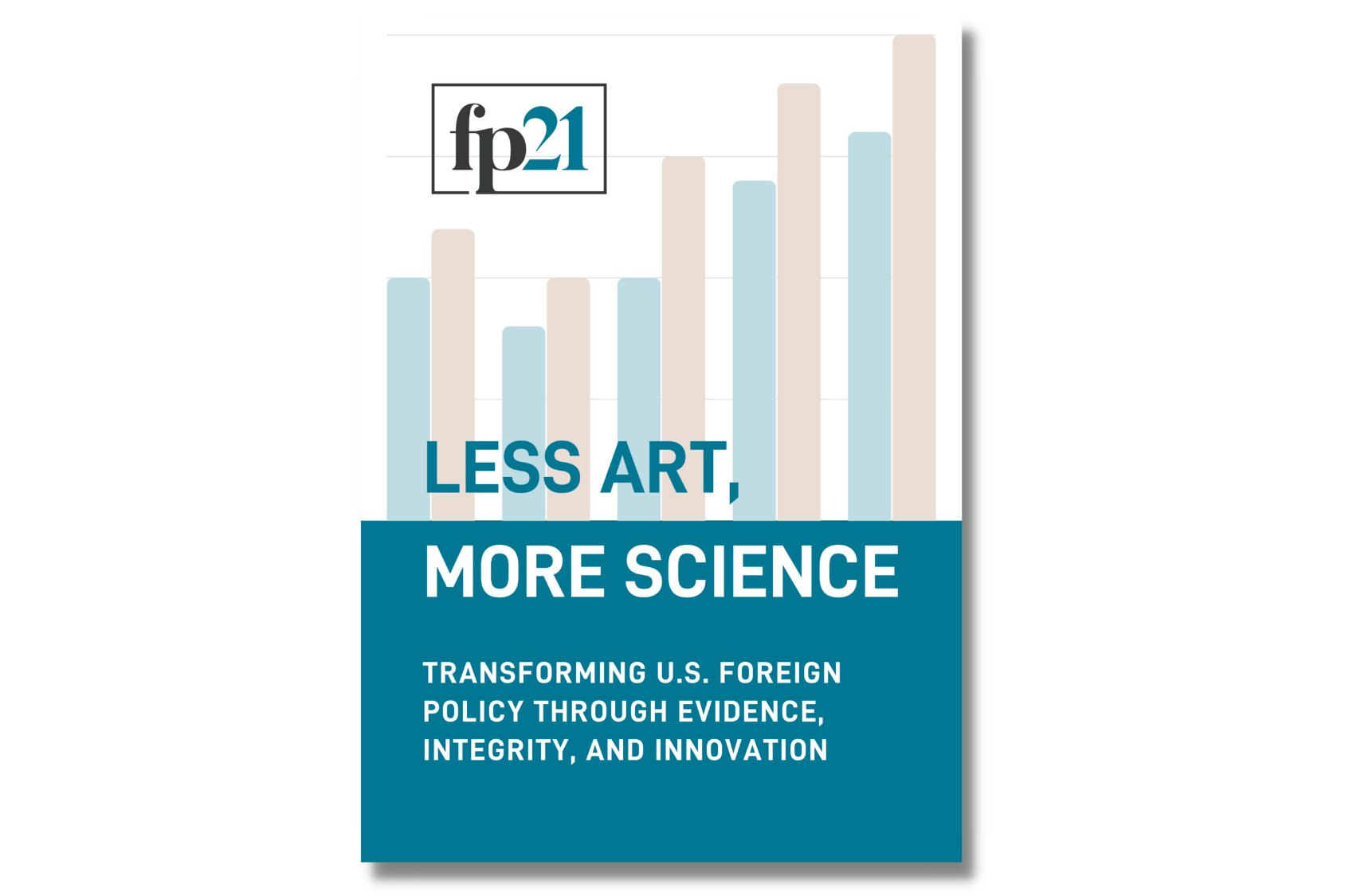
fp21’s Inaugural Report: Less Art, More Science
This report lays out a framework to achieve a more effective and modern culture of evidence-based foreign policymaking. From Silicon Valley to financial services, political campaigns to baseball, today’s most successful enterprises have built cultures grounded in evidence, analytics, and innovation. To lead in the 21st century, our government must harness more scientific tools to extract insight from a complex world and design better policy. Less Art, More Science lays out a pragmatic plan to transform the processes and institutions of foreign policy at each phase of policy making.
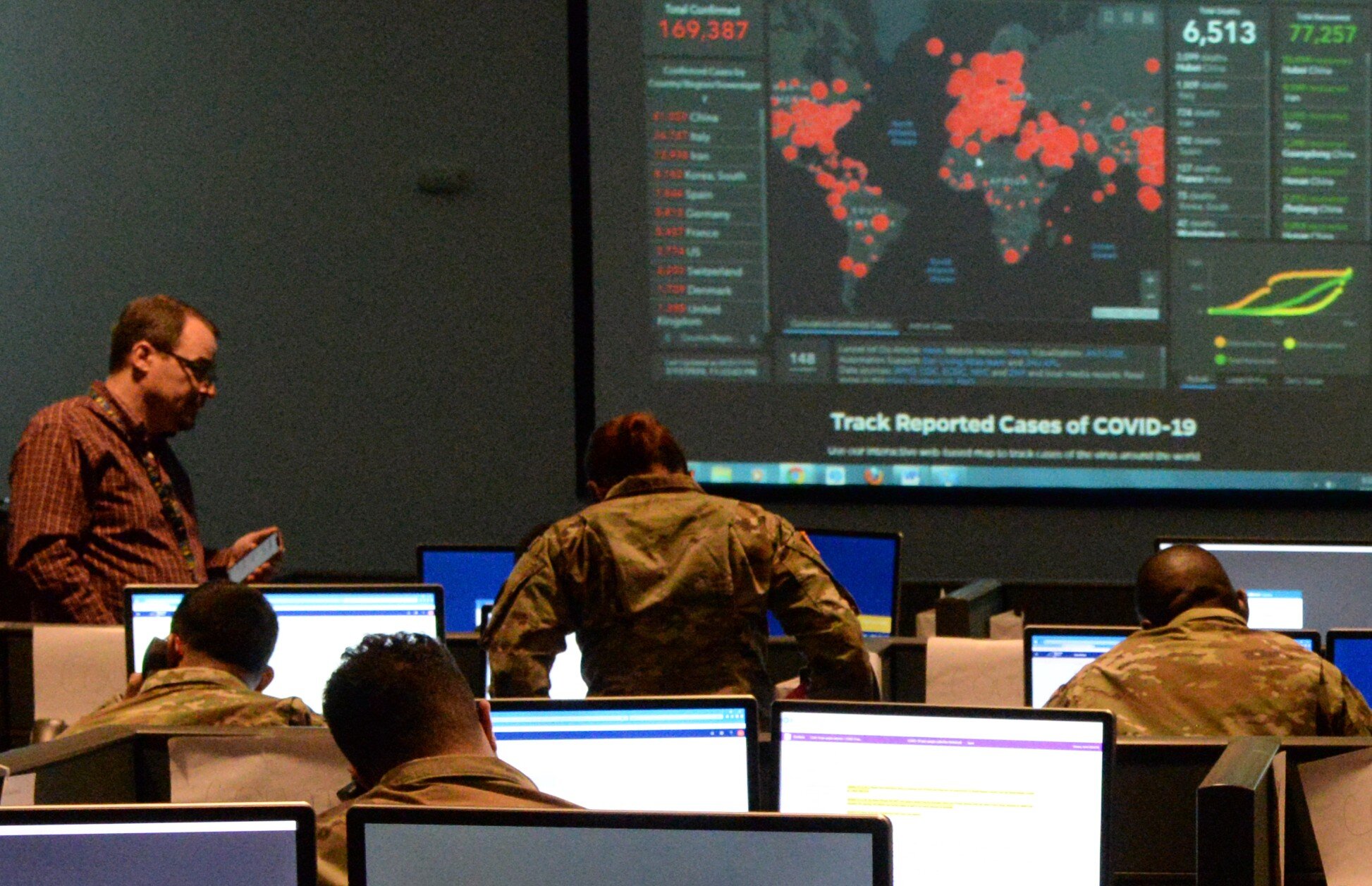
Pandemic Politics: Rebuilding diplomacy for a post-COVID-19 world
Ryan Dukeman: The pandemic’s geopolitical fallout presents a generational test for American diplomacy. Yet after nearly four years of institutional sabotage by the Trump administration, the United States’ State Department has never been in so weak a position to meet this challenge. Rebuilding American diplomacy must itself be a foreign policy priority if the United States is to lead the post-COVID-19 world. In order to do so, these four areas should form the core of this effort: focusing on data-driven policy-making, valuing expertise and debate, building a diverse workforce and tying change to the State Department’s mission.

Three concrete steps to improve the relationship between Capitol Hill and Foggy Bottom
Ryan Dukeman: For years, scholars and policymakers alike have bemoaned American diplomacy’s less-than-diplomatic approach to the first branch of government – a distrust that often cuts both ways, with legislators and staff conferring a degree of deference to the military and intelligence agencies they seldom accord to State. I propose three concrete steps Congress and the executive branch could take to improve them going forward: integrating legislative diplomacy; turning annual reports into interactive dashboards, and; strategically produce diplomatic data.

What American diplomacy can learn from public health experts
Dan Spokojny and Dr. Alex Bollfrass: In the United States, the coronavirus crisis has elevated a bureaucrat, Dr. Anthony Fauci, into the public spotlight coveted by politicians. His impressive leadership in this crisis owes much to his non-partisan expertise and a lifetime of public service. The success of public health officials like him during the Covid-19 crisis offers three inspirations for reform at the State Department. By fostering subject-matter expertise, government experience, and an apolitical dedication to policy success in its diplomats, U.S. foreign policy can achieve its objectives more effectively.

Lessons from Silicon Valley: Practical Suggestions for a Modern Workplace
Andrew R. Moore: The State Department must do more to modernize. Returning to the State Department in 2019 after three years in Silicon Valley taught me that the grass is not always greener in the private sector, but it can be. Here are a few recommendations, developed during my stay in California’s innovation hub, aimed at improving how the department supports employees, builds a usable knowledge base, learns from feedback and eases barriers to interoperability.

Breaking Away from “Born, Not Made”
Christina T. Le: It is often said by department leaders that great diplomats “rise to the top” and “hard work is rewarded,” but it isn’t clear how a person’s efforts will deliver promotions and opportunities. If we can create a new organizational culture—one where we acknowledge that diplomats are not born, but made—we are more likely to achieve the results we seek. In this manner, we are more likely to attract, retain and reward the workforce we both need and have promised the American people.

Warren’s Plan to Rebuild the State Department Doesn’t Go Far Enough
Dan Spokojny: Sen. Elizabeth Warren’s plan to “rebuild the State Department,” released on June 28, is the boldest commitment to diplomacy by any U.S. presidential candidate so far. With the nation enthralled by the spectacle of career diplomats bravely standing up against corruption, Warren’s proposal to end the practice of appointing campaign donors to ambassadorships and double the size of the foreign service should be lauded.

